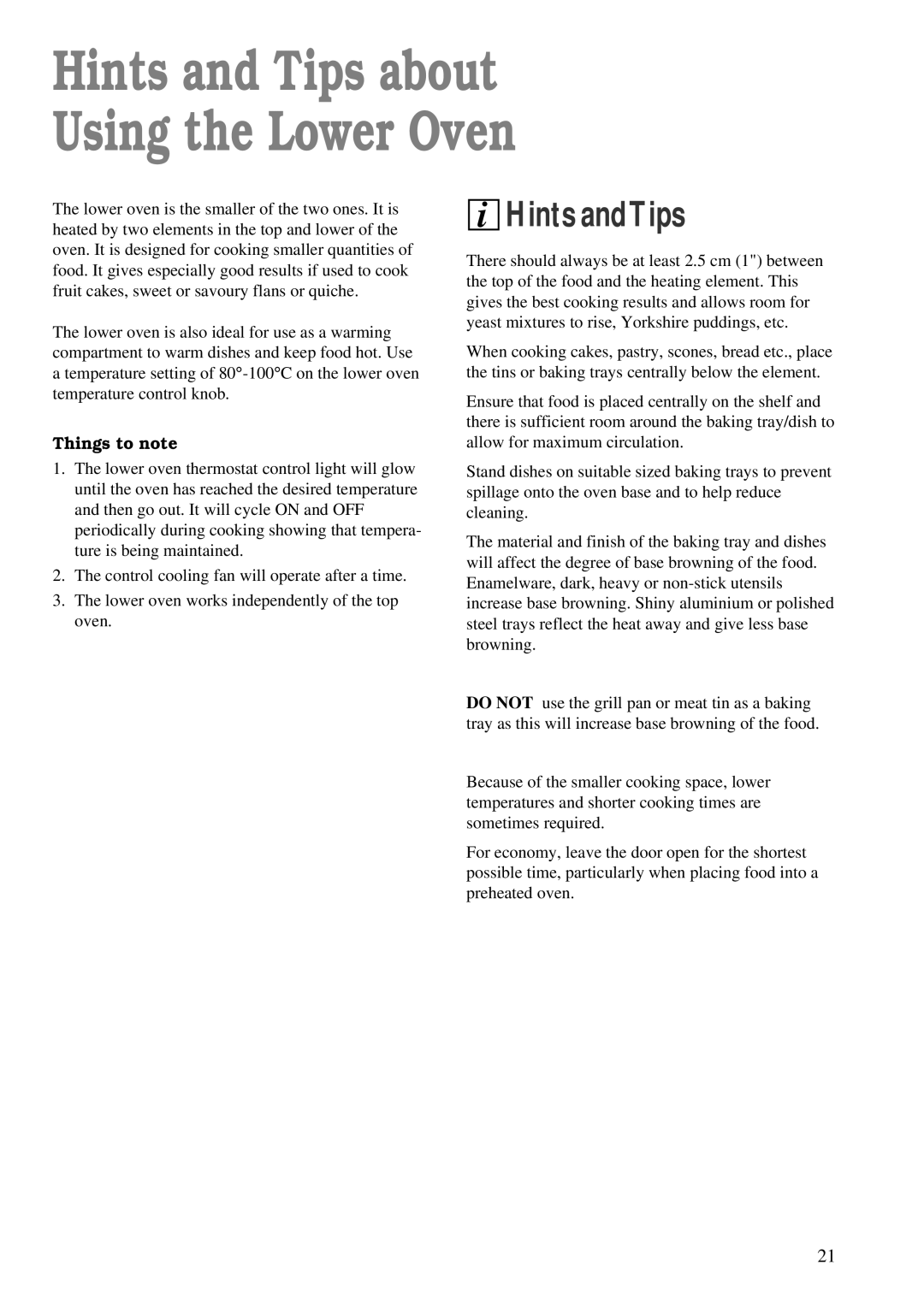Hints and Tips about Using the Lower Oven
The lower oven is the smaller of the two ones. It is heated by two elements in the top and lower of the oven. It is designed for cooking smaller quantities of food. It gives especially good results if used to cook fruit cakes, sweet or savoury flans or quiche.
The lower oven is also ideal for use as a warming compartment to warm dishes and keep food hot. Use a temperature setting of
Things to note
1.The lower oven thermostat control light will glow until the oven has reached the desired temperature and then go out. It will cycle ON and OFF periodically during cooking showing that tempera- ture is being maintained.
2.The control cooling fan will operate after a time.
3.The lower oven works independently of the top oven.
iHints andTips
There should always be at least 2.5 cm (1") between the top of the food and the heating element. This gives the best cooking results and allows room for yeast mixtures to rise, Yorkshire puddings, etc.
When cooking cakes, pastry, scones, bread etc., place the tins or baking trays centrally below the element.
Ensure that food is placed centrally on the shelf and there is sufficient room around the baking tray/dish to allow for maximum circulation.
Stand dishes on suitable sized baking trays to prevent spillage onto the oven base and to help reduce cleaning.
The material and finish of the baking tray and dishes will affect the degree of base browning of the food. Enamelware, dark, heavy or
DO NOT use the grill pan or meat tin as a baking tray as this will increase base browning of the food.
Because of the smaller cooking space, lower temperatures and shorter cooking times are sometimes required.
For economy, leave the door open for the shortest possible time, particularly when placing food into a preheated oven.
21
